

X pe d/t ition 1 | A project funded by the German Federal Cultural Foundation/Doppelpass Fund. In coproduction with projekttheater Dresden.
„1989 [exit ghost]“ is discourse theatre with and about the so-called Third Generation East – young people between their mid-twenties and mid-thirties, who were born in former East Germany. They share the stage with peers, who grew up in West Germany. Together with the directress Romy Weyrauch they seek answers to philosophical and political questions concerning the downfall of state socialism and living in times of a worsening global financial crisis.
The starting point for dealing with this topic is Heiner Müller´s rehearsal work on Hamlet/Machine, which happened to coincide with the escalating political events outside the theatre. Several passages from the script, selected rehearsal notes from Müller´s assistant director and dramaturgical colleague Stephan Suschke as well as documentary material were incorporated into the production. The theatre team then worked together to write their own texts and wove them into a new theatre script. Towards the end of the production we witness this generation in a wide-scale discourse discussing their different reactions to East Germany´s decline as well as what political options they had then and have now.
The production „1989 [exit ghost]“ is on tour during 2014/2015 in Berlin, New York, Würzburg, Hildesheim, Gera, Bremen and Braunschweig. This tour is also sponsored by the Federal Cultural Foundation.
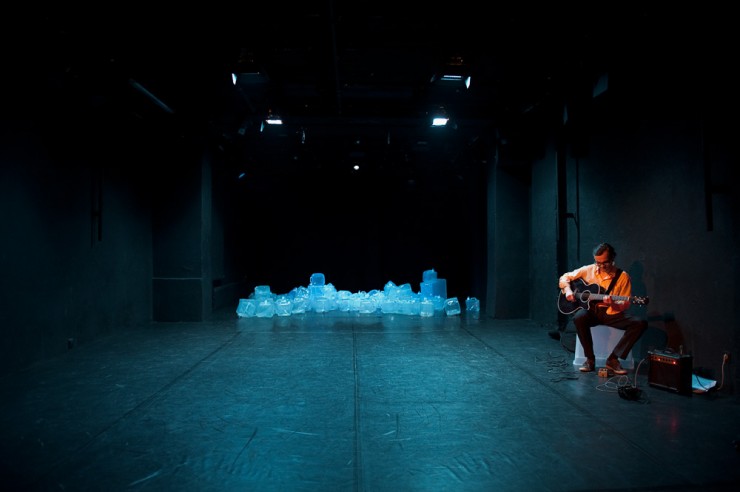
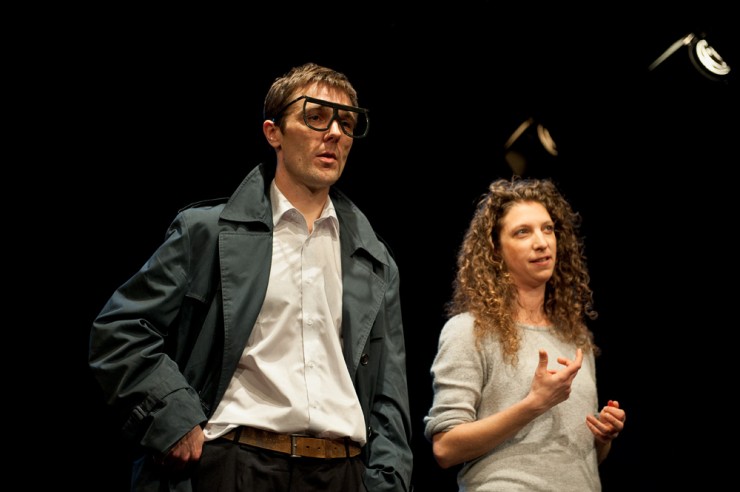
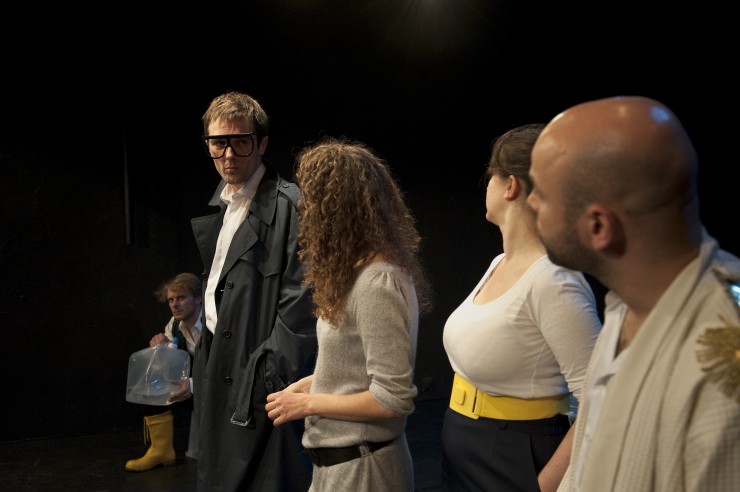
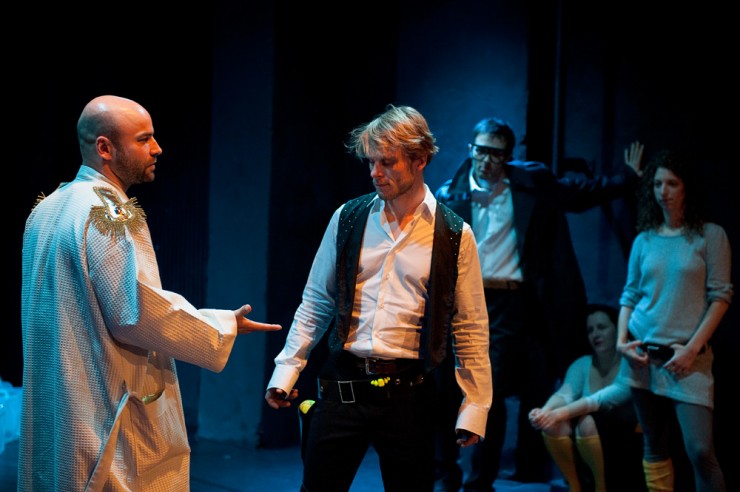
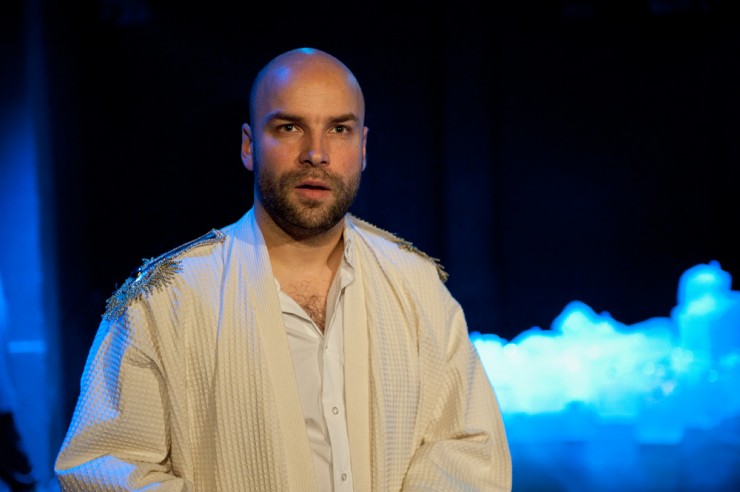
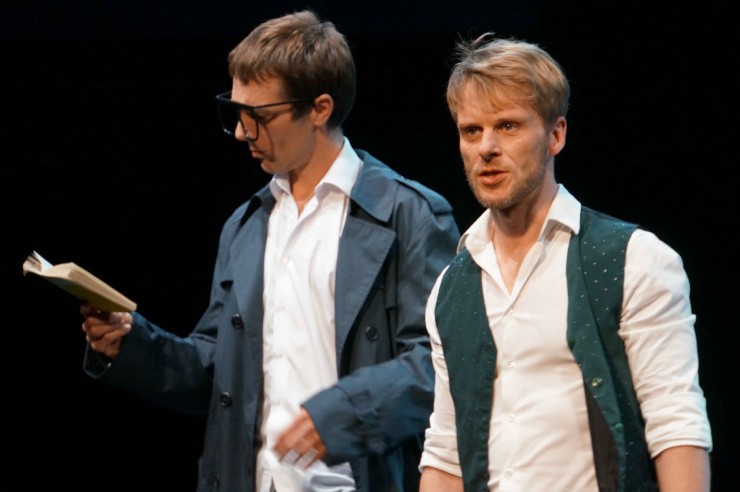
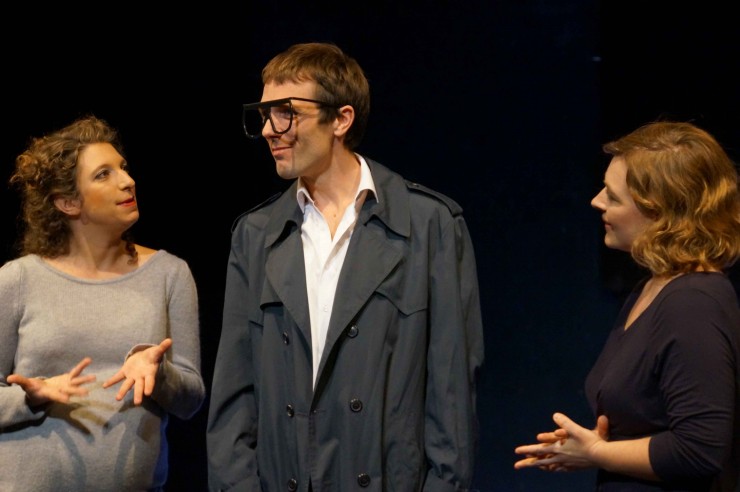
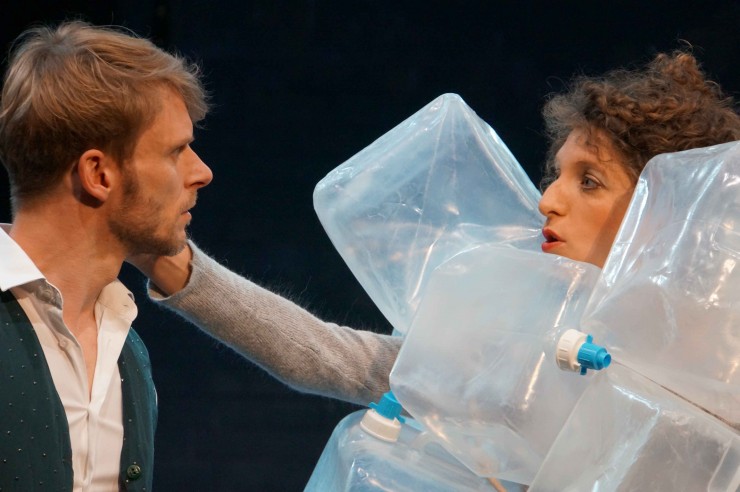
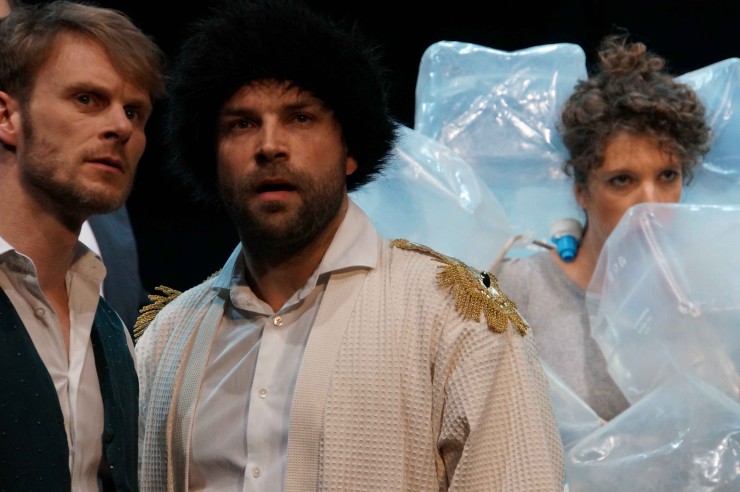
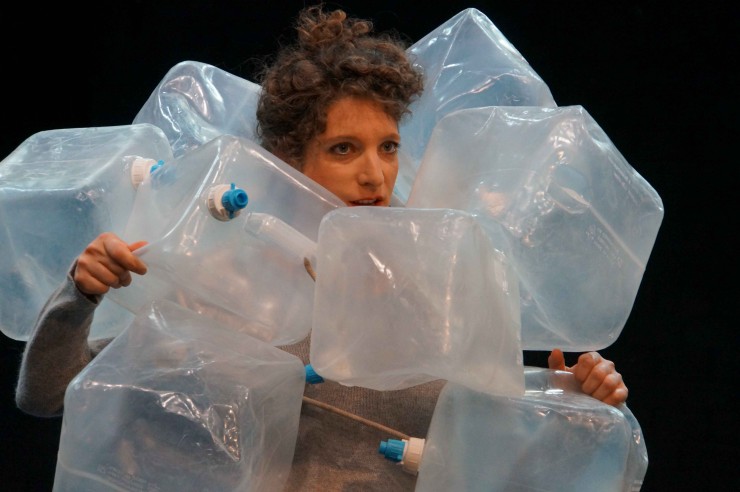
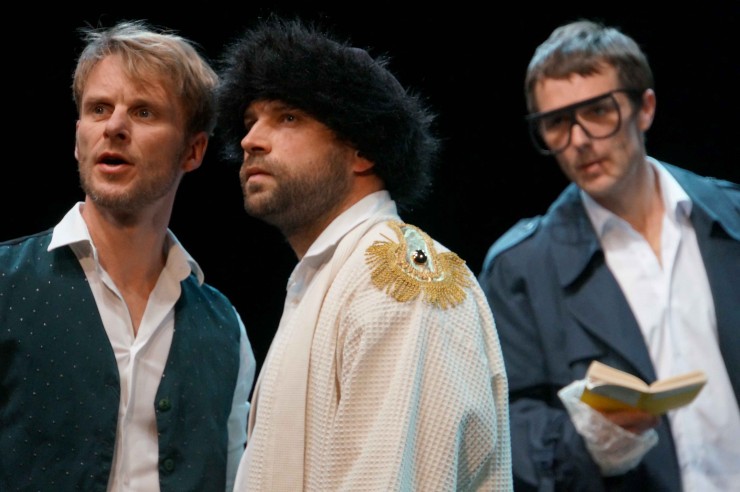
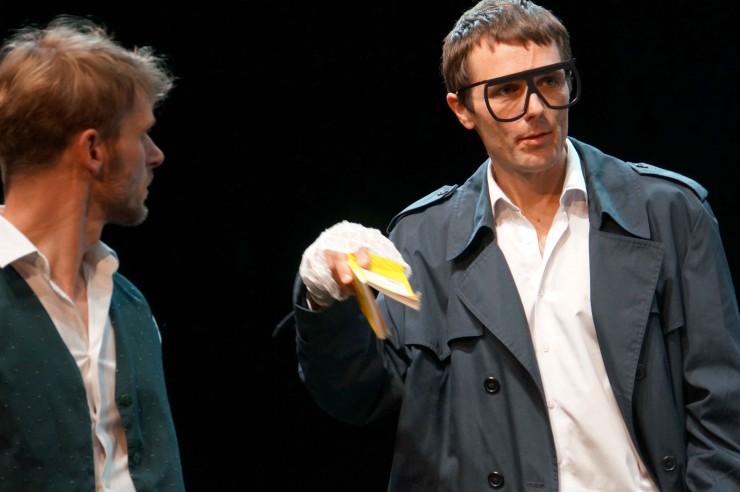
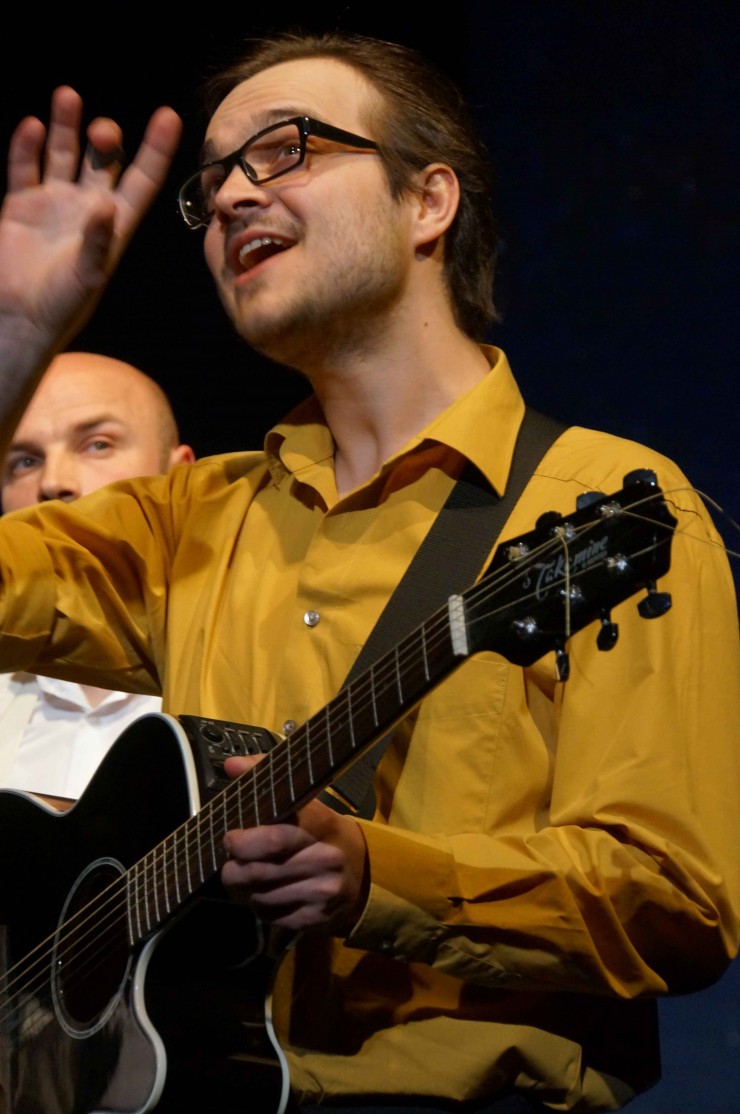
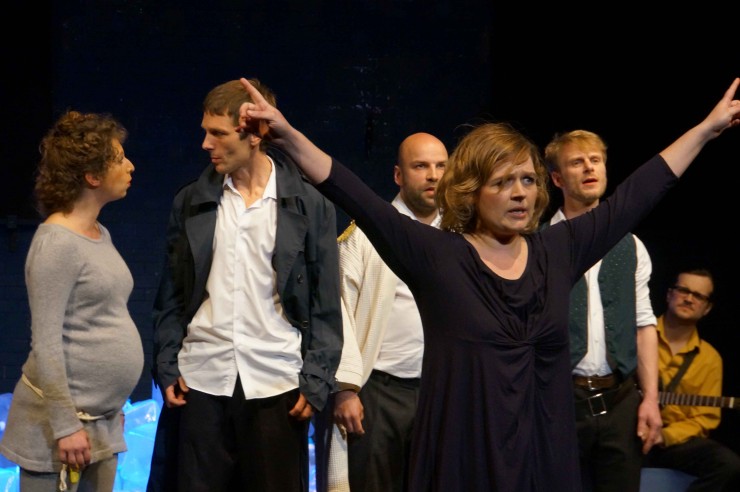
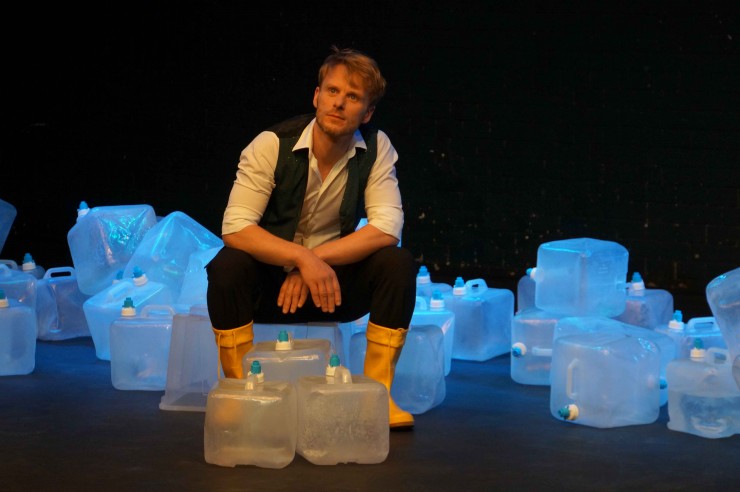
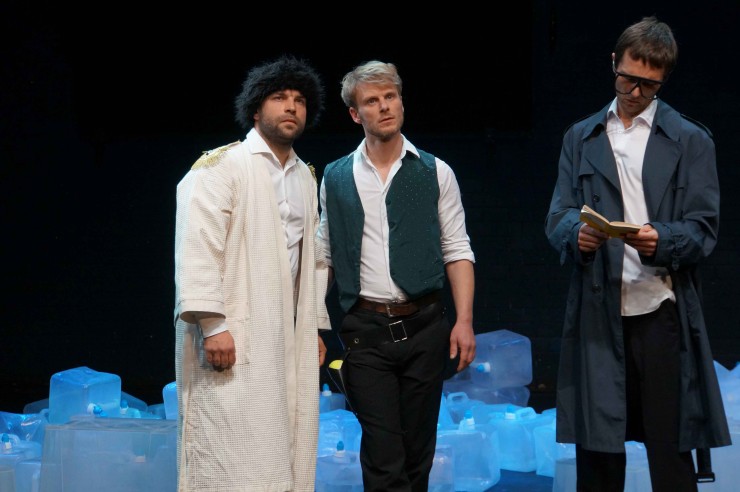
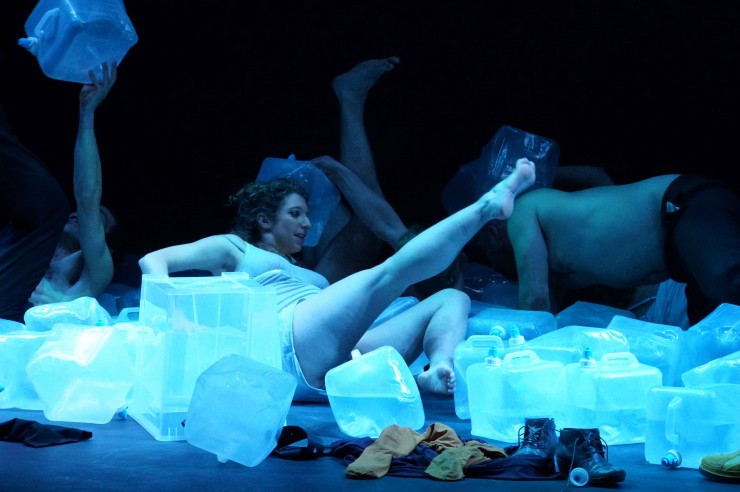
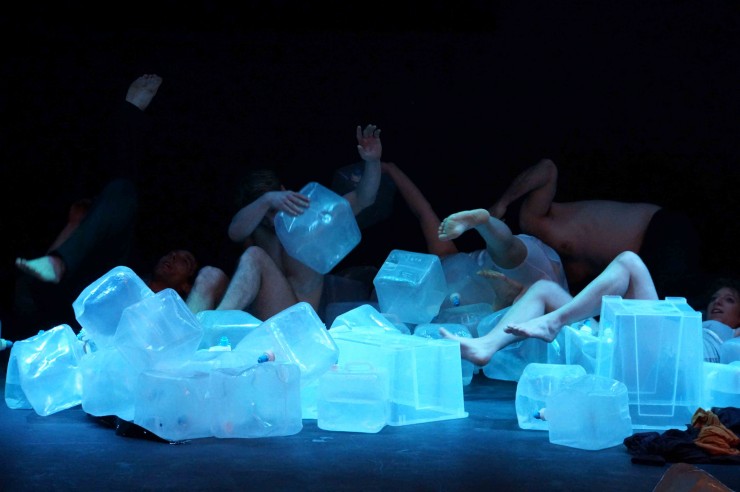
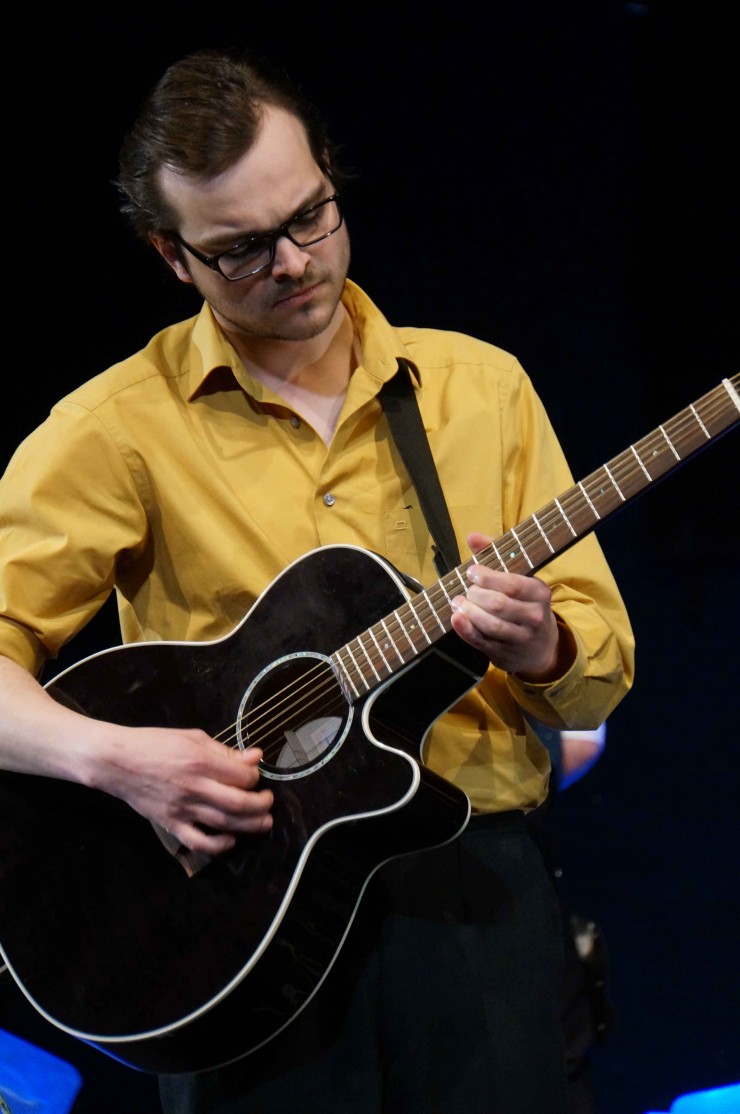
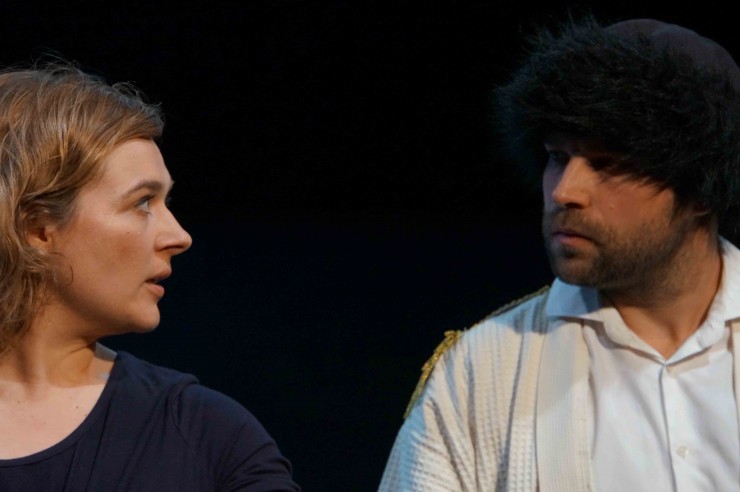
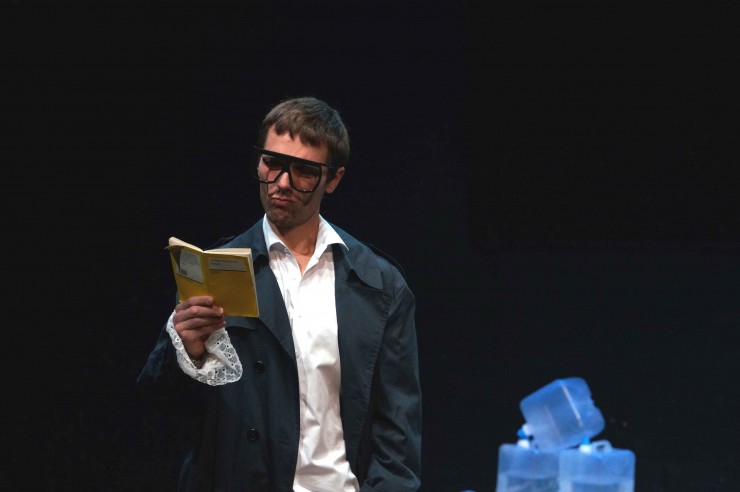
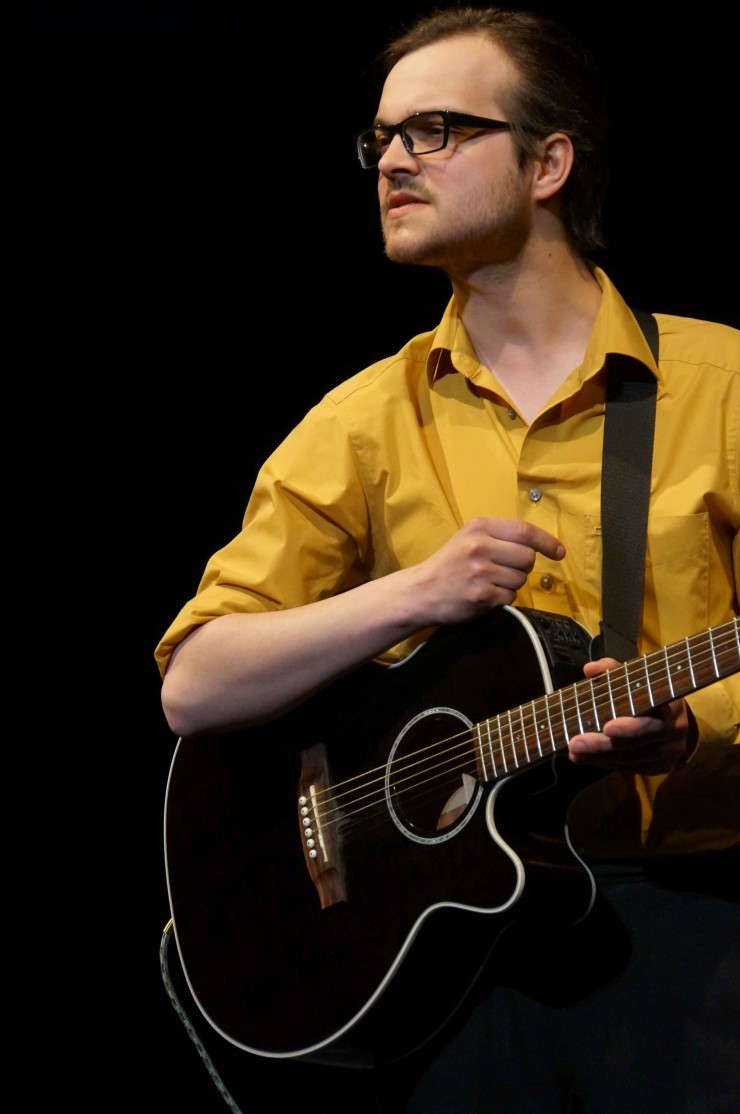
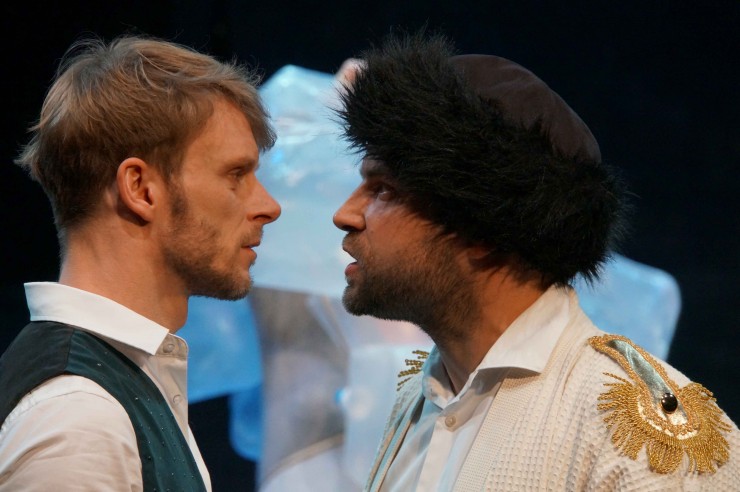
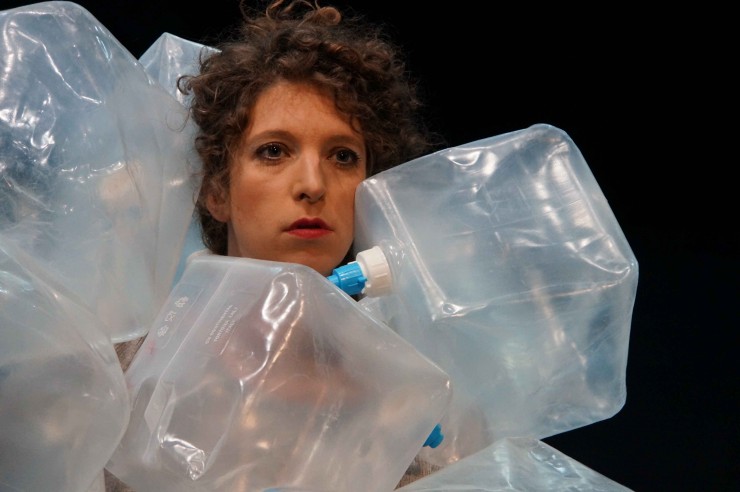
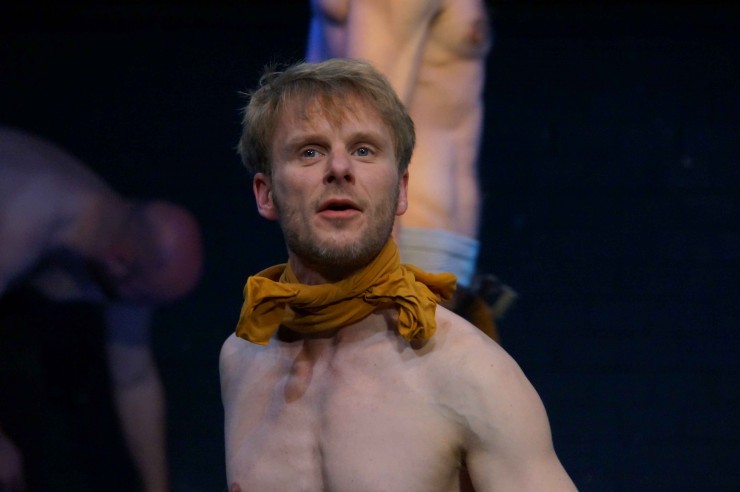
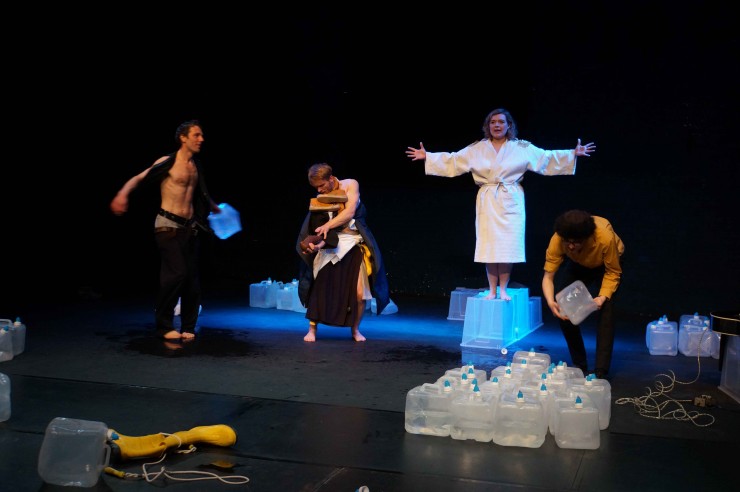
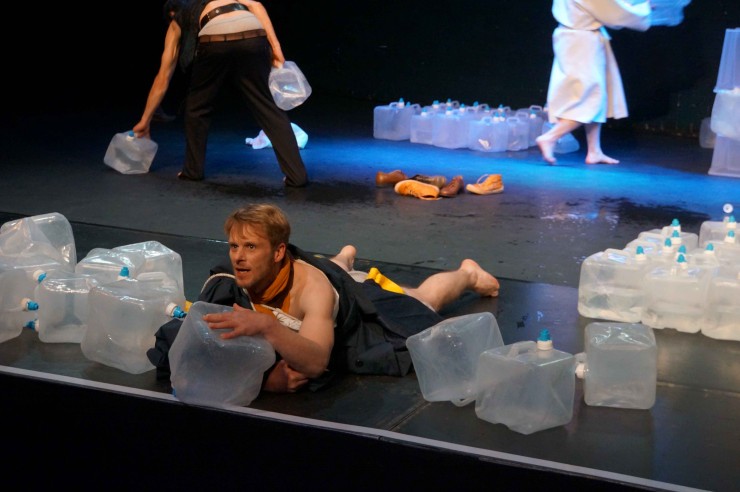
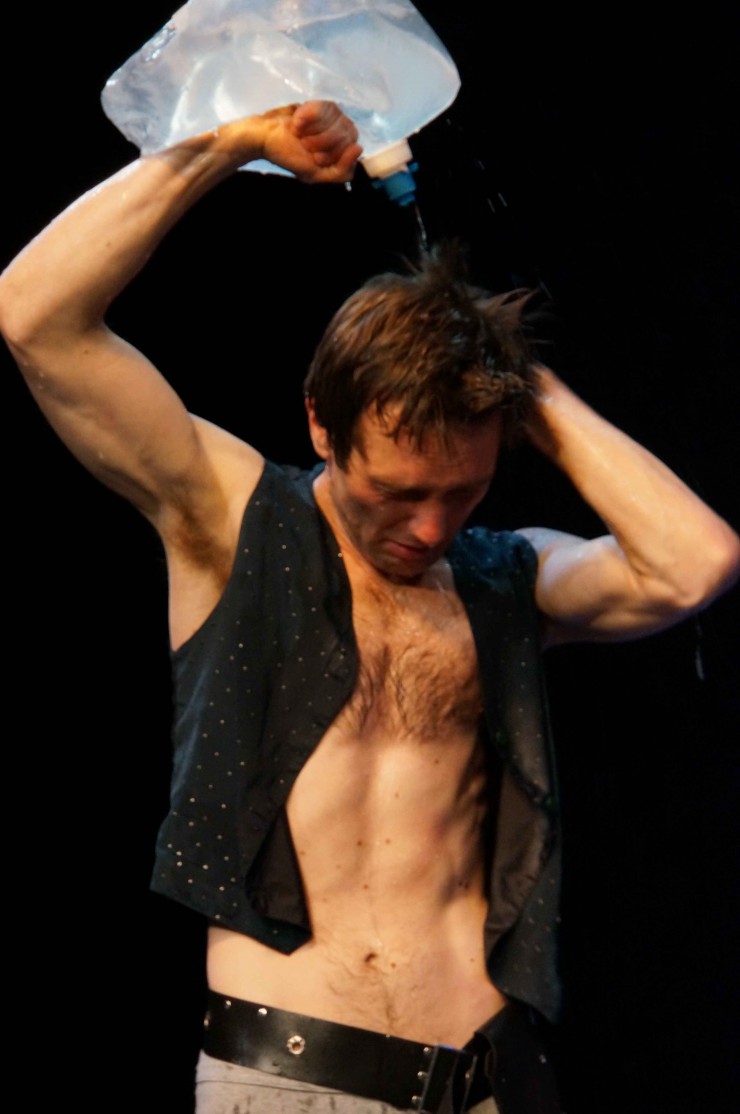
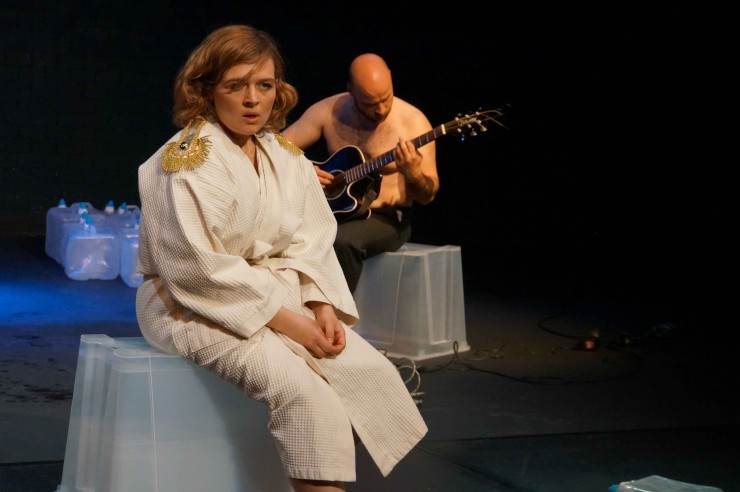
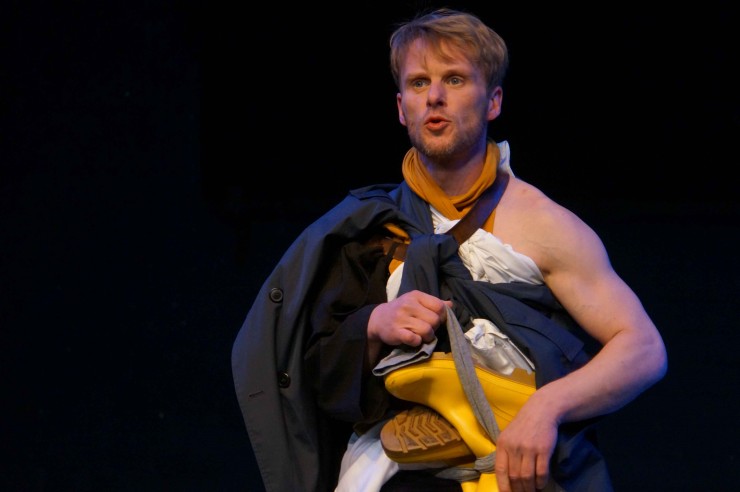
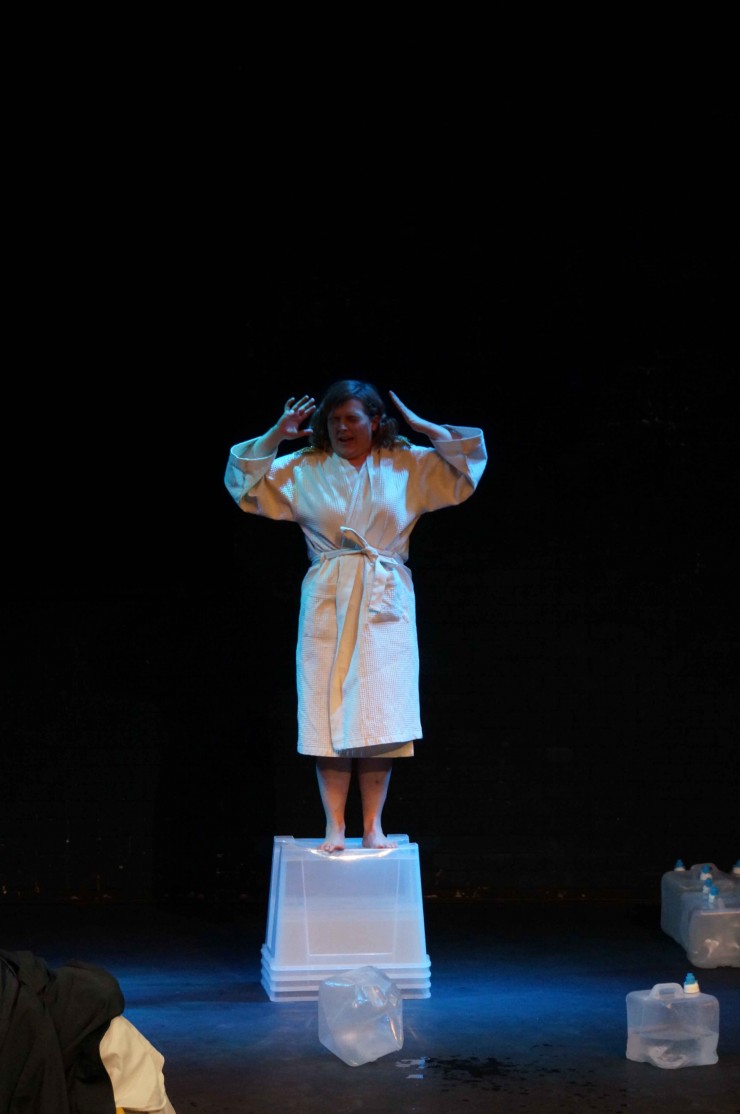
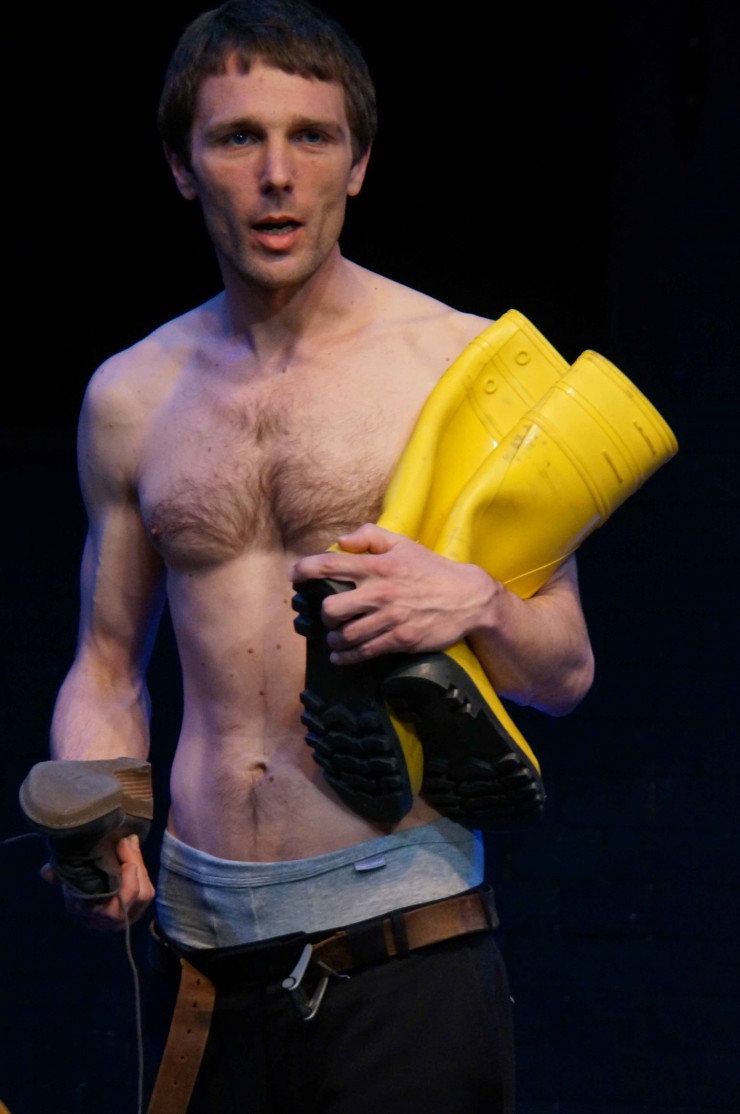
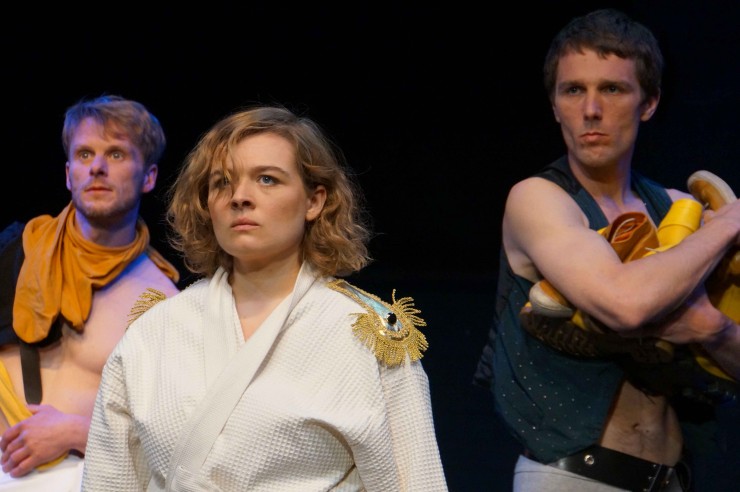




Photos by Peter Kreibich and Markus Moiser.
direction
Romy Weyrauch
performers and writers
Bärbel Aschenberg, Katharina Bill,
Norman Grotegut, Sascha Hermeth,
Lorenz Pilz, Annika Stadler, Thimo Teiche
dramaturgy
Martin Zepter
stage setting, costumes and theory
Henrike Terheyden
live music
Thimo Teiche
sounds
Stephanie Krah
production management
Daniela Guse
production assistant
Tina Flux
„1989 [exit ghost]“ on tour 2014/2015: in Berlin, New York, Würzburg, Hildesheim, Gera, Bremen and Braunschweig.
“Eines ist sicher: So eindringlich wie Katharina Bill die Autorin sprechen lässt, jedes Wort ertastend – das verrät viel darüber, warum diese Inszenierung gelingt. Theatrale Subversion vertrauen der Sprache. Was aus zeitgeschichtlichen Quellen einfließt, wird weitergeleitet, als Antrieb genutzt. So erscheint Heiner Müllers Text mit seinen Schockszenen des Verfalls in´1989´ aktueller denn je.”
Maximilian Balzer, HIAZ, 5.03.2015
“Angenehm unpathetisch und ohne große Gesten haben die Regisseurin Romy Weyrauch und die Schauspieler von ´theatrale subversion´ ihr Stück vorgetragen. Nie drängt sich eine Rolle vor den Eindruck, dass dies ihre persönliche Auseinandersetzung mit der Geschichte ist. Eine einladende Übung, Gegenwart zu verstehen.”
Katrin Bettina Müller, taz Berlin, 03.11.2015
„In Dresden läuft zurzeit das Theaterstück „1989 [exit ghost]“. Es beschäftigt sich mit der mühsamen Identitätsfindung der Spätgeborenen der DDR. Autorin ist Romy Weyrauch, Jahrgang 1983. […] Zschäpe, Wizorek, Weyrauch, Rennefanz. Gemeinsam ist ihnen ihre ostdeutsche Herkunft […] Sie hatten nach 1989 den Bonus der politischen Unschuld, doch auf ihrer emotionalen DNA hat das, was heute mit ´Wendezeit´ bezeichnet wird, eine tiefe Zerissenheit hinterlassen.“
Mauela Thieme, DAS MAGAZIN, Heft 04/2013
“Die Regisseurin Romy Weyrauch weiß, dass sie und ihre Theaterkollegen provokante Fragen in ihrem Stück 1989 [exit ghost] stellen. ‘Wir haben nicht die Antworten’, sagt sie, ‘aber uns geht es um das Begreifen von Verantwortung in dieser Gesellschaft’ und dazu gehöre auch das Fragen.”
Jana Demnitz, www.tagesspiegel.de
The project “1989[exit ghost]” is funded by the German Federal Cultural Foundation/Doppelpass Fund & by Rosa Luxemburg Stiftung, New York Office & by The New School & City University New York